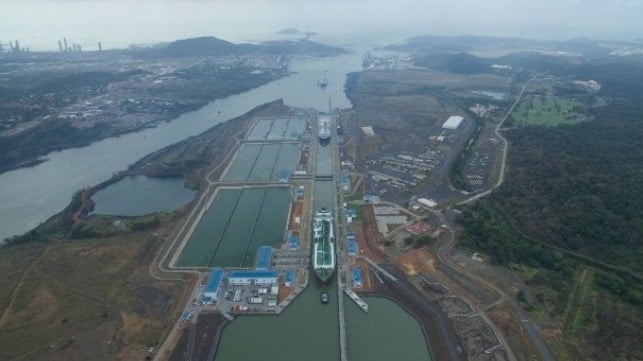State Department Calls for "Immediate Changes" at Panama Canal

The Trump administration continues to press its calls for more favorable treatment of American interests at the Panama Canal, a new area of focus for U.S. foreign policy.
In a readout after Secretary of State Marco Rubio's meeting with Panamanian President Jose Raul Mulino on Sunday, the State Department said that it has concluded that "the current position of influence and control of the Chinese Communist Party over the Panama Canal area is a threat to the canal," and a threat to the U.S.-Panama treaty on the canal's neutrality.
"Secretary Rubio made clear that this status quo is unacceptable and that absent immediate changes, it would require the United States to take measures necessary to protect its rights under the Treaty," the State Department concluded.
The canal is operated by the Panamanian government's Panama Canal Authority (ACP), and has been since 1999. However, there are Chinese entities nearby: Chinese state construction firms CCCC and CHEC are currently building a bridge over the canal, and Hong Kong-based Hutchison Ports owns container terminals next to each end of the waterway. These signs of Chinese presence have attracted scrutiny from Trump's White House and his allies in the Senate.
The newly-promoted chair of the Federal Maritime Commission, Michael Sola, added a new factor last week. He told CNBC that some Chinese ships may be receiving a refund of their canal transit fees from the ACP - a side benefit not given to American vessels. "I find the entire practice alarming, that canal tolls would be refunded for any reason whatsoever," he said. "So I think that [Panama] really needs to take a look at that."
He also noted the favorable terms that Hutchison received on port lease renewal, and suggested that "the people of Panama are not getting anything for these two ports to be operating there."
Sola said that all options are on the table for a U.S. response, and he referenced a little-used statute that could be put into play to compel action: the FMC has the power to fine or suspend U.S. port access for specific flag states, with enforcement support from the Coast Guard. Panama is the second-biggest open registry in the world, with 8,000 ships operating under its flag, and suspending U.S. access for Panamanian-registered ships would give shipowners a reason to switch flags - denying Panama much-needed revenue.
